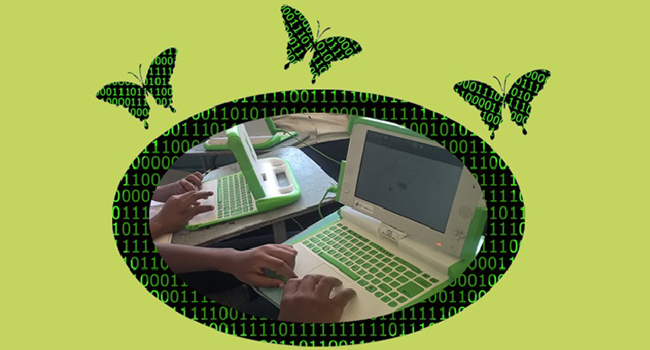This study is intended to strength the Honduran educational model by developing a pedagogical approach based on PBL principles for primary schools, using computers as a main pedagogical tool and involving teachers, students, and foundations (non-profit organizations) in the design of this model. In addition, this research makes a theoretical contribution to the educational field by introducing this model in urban marginalized areas in developing and developed countries that struggle with similar socio-economic problems, such as high rates of violence, unemployment, family breakdown, and poverty.
This study followed a participatory approach in which practitioners played an important role, and teachers’ and students inputs’ were considered to be relevant to identifying the constraints and seeking solutions for their challenges during the fieldwork. Educational design research (McKenney & Reeves, 2012) was the methodology used to conduct this study, which consisted of three main phases: analysis and exploration; design and construction; evaluation and reflection. In each phase, different theories were used to analyze the data and it follows a qualitative approach.
This research partly fills the literature gap on low-income public schools in impoverished areas regarding the proper use of ICT and pedagogical skills to engage teachers and students in an active learning process that allows them to develop 21st-century skills for critical thinking, problem solving, and communication. This thesis proposes a pedagogical design integrating PBL, XO computers, and 21st-century skills for use in the classroom with children attending schools in deprived areas. In addition, this study proposes the development of what the researcher calls the inside-outside microsystem with the aim to boost students’ academic potential in order to equip them with the support of teachers and peers (from inside) to transform themselves and make positive impacts on the external world (the outside) in which they navigate the threats of high crime rates, gangs, extreme poverty, and overcrowding every day. Despite such circumstances, school can positively influence children, helping them develop a “learning to learn” mindset in the classroom and providing them with opportunities to use their knowledge to transform their own reality.
This study expect that the proposed designs can served as a source of inspiration for researchers and practitioners to replicate or adapt in future design research. However, these designs should be understood from the context in which they were constructed and implemented—in an attempt to improve educational quality in marginalized areas to ensure that students from impoverished neighborhood have opportunities to transform their present and, in the future, are able to access jobs and business opportunities that currently favor only a privileged class. This study contribution is the result of empirical work with a limited group of students and teachers at the micro level, with the potential to be replicated in areas with similar characteristics to those presented in the research.
In sum, in this research context the empirical data collected showed that pedagogical problems are not fixed with the introduction of technology, per se. Teachers’ practices need to be changed from a teacher-oriented approach, and they need to embrace the use of XO computers or any other technological device accompanied by a student-centered approach such as PBL to motivate children to learn to learn. The use of XO computers as a pedagogical tool should be standardized and become part of the curriculum, and teachers should play an active part in this process. Technology cannot replace teachers’ functions, but their skills and expertise must be scaffolded through systematic training to improve the use of technology in classroom design without losing humanity. This is especially so with students struggling to learn in social risk environments, in which school most likely is the only resource to transform their reality.

